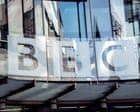The Guardian view on billionaire Britain: tax wealth fairly or face democratic unravelling | Editorial
Without bold reform which makes the rich pull their weight, rising inequality risks eroding public trust and fracturing social stability
Britain for the last decade has experienced a bleak paradox: rising child poverty alongside a dramatic increase in billionaire wealth. This inequality has been tolerated partly because greed has been rehabilitated as virtue. The Billionaire Britain report, published this week by the Equality Trust, reveals what many instinctively feel but few in parliament will admit: the UK economy has become a machine for the upward redistribution of wealth.
Using Sunday Times Rich List data, the report found that the 50 wealthiest UK families now own more than the poorest half of the population combined. Their opulence is no accident. It’s largely built on the labour and consumption of those 34 million other Britons. The gains of society are being hoarded by those least in need. There’s a lexicon that sells it all as “entrepreneurial spirit” and business dynamism. But the very markets that reward the wealthiest so handsomely are constructed and policed by the state. Governments entrench intellectual property rights, strengthen legal monopolies and write policies that benefit banks and asset markets.
Do you have an opinion on the issues raised in this article? If you would like to submit a response of up to 300 words by email to be considered for publication in our letters section, please click here.
Continue reading...
© Photograph: Dominic Lipinski/PA

© Photograph: Dominic Lipinski/PA


















